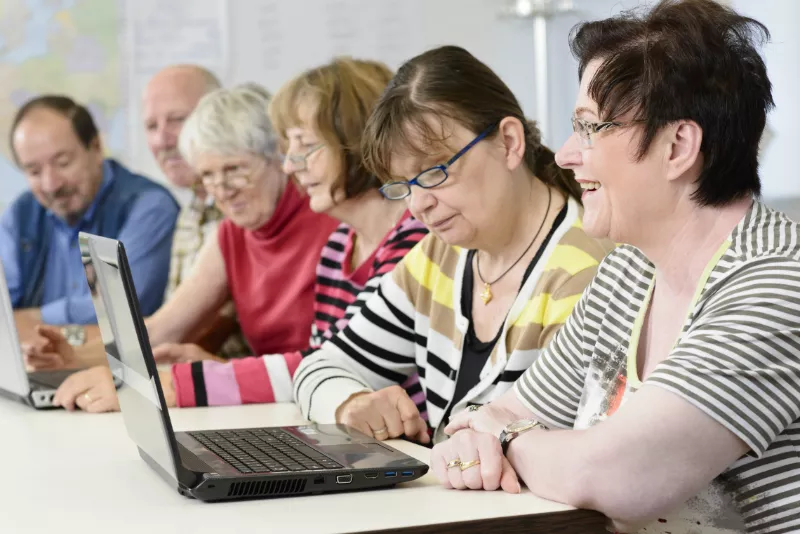EPALEs fokus: Digitalt lärande som vuxen

Under januari och februari kommer EPALEs tematiska fokusområde att handla om den digitala rollen i vuxnas lärande.
Digitalt lärande är alla typer av lärande som involverar användandet av teknik (som digital enheter, onlineverktyg, appar etc.) och multimediainnehåll. Digitalt lärande kan ge pedagoger flexibilitet och fler effektiva sätt att utvärdera och följa upp de studerande. Det kan också ge de studerande enklare, snabbare och billigare tillgång till information och en möjlighet att personifiera sin inlärningserfarenhet.
|
Här på EPALE uppskattar vi den viktiga roll som digitala verktyg har för att omvandla sättet vi undervisar och lär på samt hur det tillhandahåller en mer effektiv och inkluderande lärandeupplevelse. Kolla in EPALEs tematiska sida E-lärande, där EPALEs medlemmar och nationella team har samlat intressanta artiklar, användbara resurser och fallstudier (innehållet varierar beroende på språkversion). Besök EPALE regelbundet för nytt innehåll under januari och februari! |
Kommentar
Yetişkinler için Dijital Materyal Geliştirme Eğitimi
- Logga in eller registrera dig för att kunna kommentera
FabLabs: digital learning spaces and enabling contexts
- Logga in eller registrera dig för att kunna kommentera
Online offer
- Logga in eller registrera dig för att kunna kommentera
digital adult learning
- Logga in eller registrera dig för att kunna kommentera
OUR PROJECT ABOUT ICT
- Logga in eller registrera dig för att kunna kommentera
DIGITAL AND ONLINE ADULTS LEARNING - Digital knowledge
· · Realization of the project "Initiative for Social Inclusion of the Elderly" 2016
·
•
- Logga in eller registrera dig för att kunna kommentera
Digital learning for adults with disabilities
- Logga in eller registrera dig för att kunna kommentera
Digitālās prasmes = jaunas zināšanas
- Logga in eller registrera dig för att kunna kommentera
Learners with disabilities
- Logga in eller registrera dig för att kunna kommentera
Pieaugušo digitālā izglītība
- Logga in eller registrera dig för att kunna kommentera
We are in the digital education of adults.
- Logga in eller registrera dig för att kunna kommentera
Le numérique pour diversifier les activités d'apprentissage !
- Logga in eller registrera dig för att kunna kommentera
Es uzskatu,ka ir ļoti svārīgi
- Logga in eller registrera dig för att kunna kommentera
Digital Qualifications (Çukurava Public Centre/ Turkey)
- Logga in eller registrera dig för att kunna kommentera
Apprentissage par le numérique e-learning
- Logga in eller registrera dig för att kunna kommentera
Digitālā izglītība
- Logga in eller registrera dig för att kunna kommentera
New digital tool supporting adult learning
- Logga in eller registrera dig för att kunna kommentera
Smart-visuomenė aktyviai
- Logga in eller registrera dig för att kunna kommentera
Digital in Adult Learning
- Logga in eller registrera dig för att kunna kommentera





skills that are necessary for qualitative usage ICT in learning